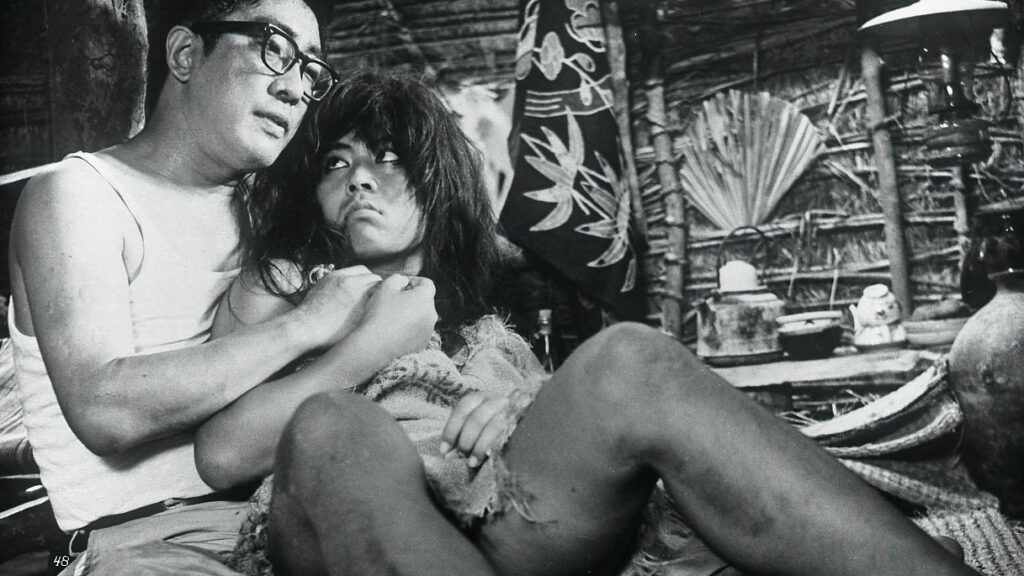
One of the greatest Japanese filmmakers – Shōhei Imamura (1926-2006) – authored violent, vital, existential films. He portrayed the passion of degenerate and marginalized characters in their irrepressible struggle for life as well as the materiality and sensuality of the body. Imamura explored the lowest classes of Japanese society, its carnality, its immorality (theft, prostitution, murder) in films of free-flowing, episode-based plots, with a touch of documentary style thrown in. He also made, incidentally, beautiful non-fiction pieces like History of Postwar Japan as Told by a Bar Hostess.
In Profound Desires of the Gods (1968), his first colour picture, Imamura wanders into a semi-mythical territory. In an imaginary island of modern southern Japan, a primitive population believes their land has been created by gods, given its lush, thriving nature. An engineer from Tokyo visits this pantheist world, a place of instinct and sensuality (as opposed to Japanese tradition) and of raw, pre-civilized purity. Incest, while punished, reminds of Japanese creation myths: divine siblings Izanami and Izanagi. This world, though, will soon face destruction due to the arrival of modernity and tourism.
Framing is ennobled by masterful composition as Imamura powerfully sketches out the relationship between man and nature, later clearing into an ancestral religious sentiment that gets lost in civilization.

A year after Suzuki’s film, another bomb for Nikkatsu in the form of a too strongly anti-mainstream film for what was then the taste of the public. Again, the director was assigned nothing but documentaries to work on for ten years straight.
...No results found.